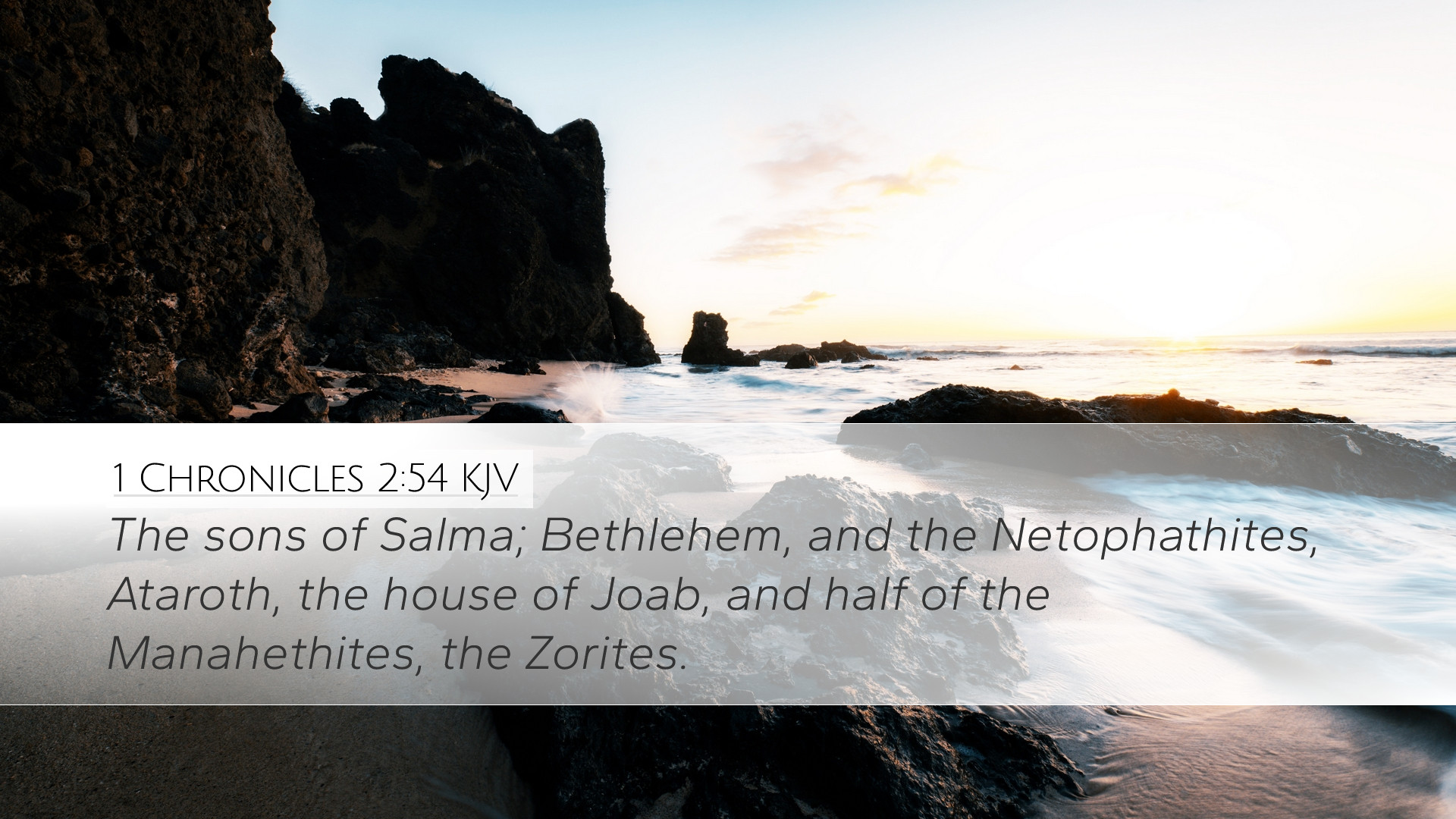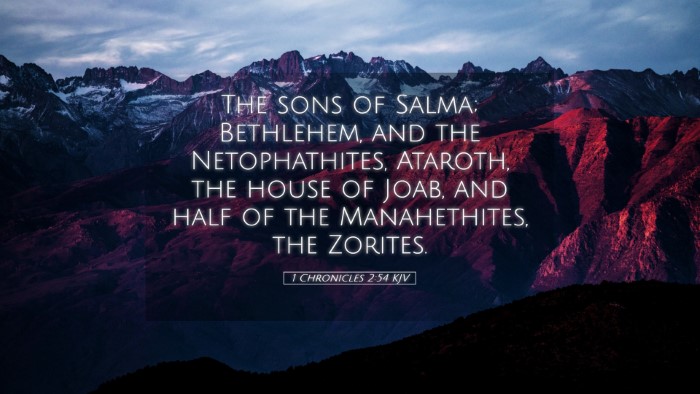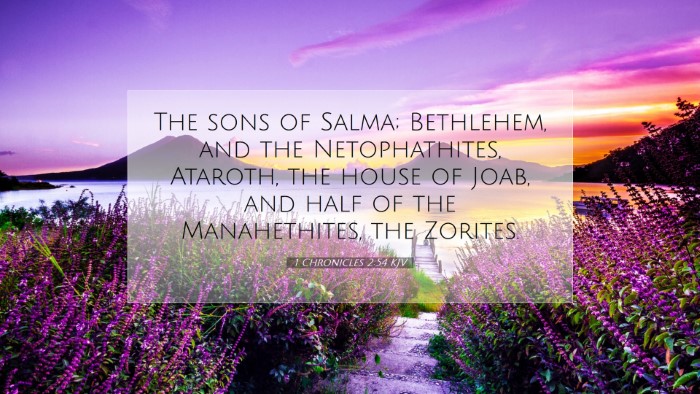1 Chronicles 2:54 states: “The sons of Salma; Bethlehem, and the Netophathites, Ataroth, the house of Joab, and half of the Manahathites.” This verse provides a genealogical outline that is rich in historical and theological significance, illustrating the importance of lineage and settlement in Israel's narrative.
Historical Context
This verse is part of the genealogical records found in the first chapters of Chronicles, which focus on the tribes of Israel, particularly those of Judah. The emphasis on lineage reflects the cultural and religious importance attached to family and ancestry in ancient Israelite society, especially as it pertains to land inheritance and divine promise.
Commentary Insights
Matthew Henry's Commentary
Henry notes the importance of Salma as a descendant of Judah and highlights his connection to Bethlehem—the birthplace of King David. This geographical reference signifies not only a connection to Davidic royalty but also anticipates the significant role Bethlehem will play in biblical prophecy, particularly regarding the Messiah.
Henry further emphasizes that the mention of cities and towns, such as the Netophathites, underscores the spread of the Judahite clans and their settlements, thereby painting a picture of the sociopolitical landscape during this period. Salma's descendants thus represent the fulfilment of God’s promises to Judah, where the land becomes a testament to divine favor.
Albert Barnes' Notes on the Bible
Barnes examines the names mentioned in this verse, noting that the "sons of Salma" details various clans and their settlements. He explains that “Netophathites” refers to people from Netophah, which, according to Joshua 15:52, was located southwest of Jerusalem. This inclusion connects the genealogy with particular locations, illustrating the continuity of various households in Israel’s history.
Barnes elaborates on the reference to “Ataroth and the house of Joab,” interpreting these places as significant both militarily and ceremonially, hinting at the involvement of these families in critical events in Jewish history. This highlights the importance of regional affiliations and familial ties in the formation of Israel as a nation.
Adam Clarke's Commentary
Clarke reflects on the significance of genealogy as it relates to God's covenant with His people. He expresses that understanding the ancestry of significant figures such as King David is crucial for comprehending the unfolding plan of salvation through Christ, who emerges from this lineage.
Furthermore, Clarke mentions the dual references to "half of the Manahathites," suggesting organizational and societal shifts in the region. This reflects both the administrative structure and the potential challenges faced by the tribes of Judah in maintaining their identity and territorial claims amid competing influences from neighboring tribes and nations.
Theological Implications
The theological significance of 1 Chronicles 2:54 concerns God's covenant. It emphasizes how God’s promises extend through generations and becomes tangible in the geographical locations linked with these lineages. The genealogy serves not only as a record of familial descent but also as a reminder of God’s faithfulness through history.
The mention of Bethlehem is particularly poignant. This region will be pivotal in New Testament narratives, notably in the birth of Jesus Christ. Therefore, this verse connects the Old Testament lineage leading to crucial events in the New Testament, reinforcing the unity of Scripture and the unfolding of God's redemptive plan.
Applications for Modern Readers
- Understanding Heritage: The importance placed on lineage and genealogies invites modern readers to reflect on their spiritual heritage and identity in Christ.
- The Role of Place: Recognizing that specific places are called out in genealogies encourages believers to understand their local congregations and communities as integral to God's Kingdom.
- Faithfulness of God: This verse, like many genealogical records in Scripture, reaffirms the faithfulness of God to fulfill His promises across generations, encouraging trust in His ongoing work.
- Embrace of Diversity: The variations in names and places remind believers of the diversity within the body of Christ and the global church.
In conclusion, 1 Chronicles 2:54 serves as a vital link in the genealogical chain that narrates God’s enduring faithfulness to His people. Rich in historical and theological significance, it stands as a testimony to the fulfillment of divine promises and the continuity of God’s plan through time and space.


